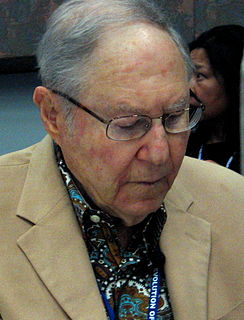A Quote by Marshall B. Rosenberg
If we ask two questions, we will see that punishment never works. First: What do we want the other person to do? Second: What do we want the other person's reasons to be for doing as we request?
Related Quotes
Two questions help us see why we are unlikely to get what we want by using punishment... The first question is: What do I want this person to do that's different from what he or she is currently doing? If we ask only this first question, punishment may seem effective because the threat or exercise of punitive force may well influence the person's behavior. However, with the second question, it becomes evident that punishment isn't likely to work: What do I want this person's reasons to be for doing what I'm asking?
See, that's the thing about second chances. It's two people that are there for each other and support each other and care about each other no matter how much they want to deny it. It's about one person doing everything they can to make sure the other doesn't fall and vice-versa. Second chances are about holding on to that other persons hand no matter how hard they beg to let go.
There's a morality... I think there's a moral compass but whether that comes from religion or just from being a good person, and where one starts and the other begins... I'm a good person, I hope. But I'm never as good as I want to be, never as nice as I want to be, never as generous as I want to be.





































